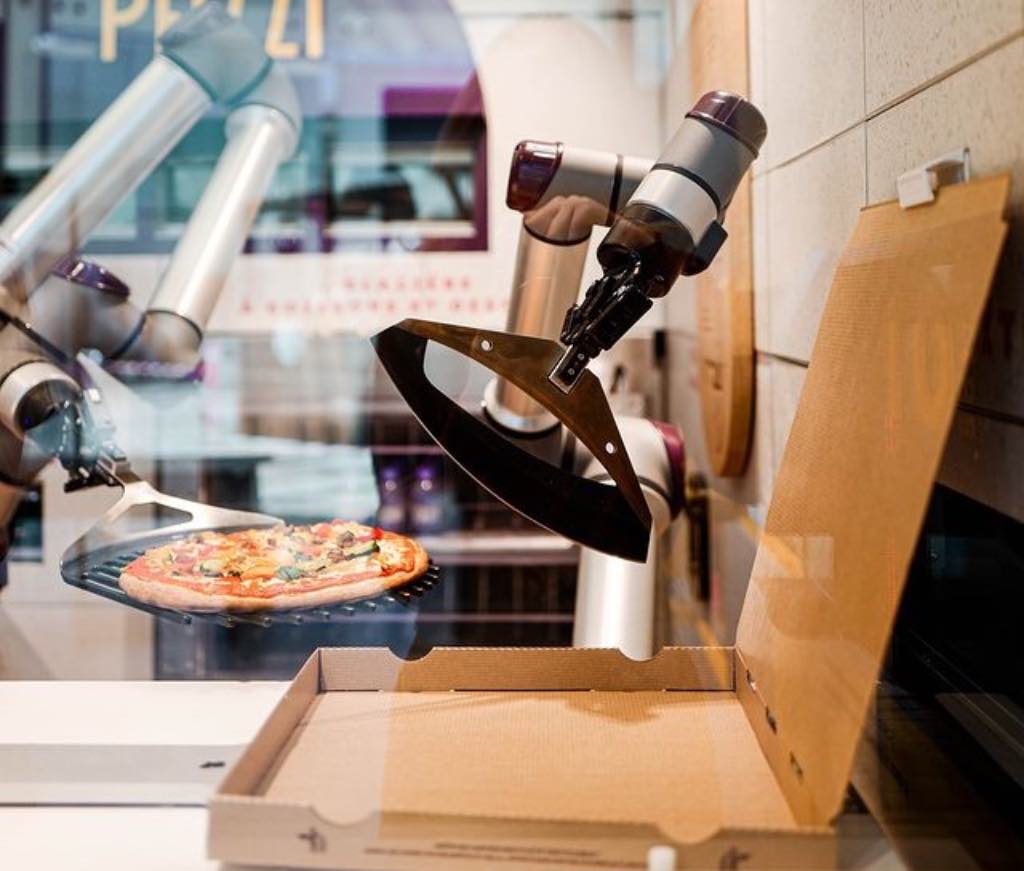
Robotic pizza
What is a pizzeria without a pizzaiola in a white T-shirt and apron sweating in front of a brick oven? A robotic pizzeria named Pazzi, now operating in Paris. News18
Le junk food in France
Speaking of pizza, here’s a look at what the supposedly sophisticated gourmets of France really eat – and it ain’t all foie gras and champagne. (The Local)
De-uglifying Paris
As City Hall vows to clean up the streets after a recent outcry, one commentator takes a different stand on what’s wrong with Paris. (The Local)
Byzantine and Coptic art at the Louvre
The Louvre’s new president, Laurence des Cars, has big plans for the museum. (Artnews)
Napoleon’s art-looting habit
Cynthia Saltzman‘s new book Plunder: Napoleon’s Theft of Veronese’s Feast analyzes art theft as a tactic of war. (Hyperallergic)
French nuclear testing
Did French officials cover up a rise in radiation levels in French Polynesia due to nuclear testing between 1966 and 1996? They say no. (France 24)
Favorite
An excellent article on Plundering. Learned a new perspective from reading the review:
‘During the time of the Republic, she writes, France’s leaders wanted badly to show “their modernity [and] their support for the Enlightenment,” which they believed justified plundering. According to the Enlightenment, “great works of art should be accessible”; thus, the argument went, it was legitimate to steal “The Wedding Feast at Cana” from the monastic refectory where it hung. Relying heavily on primary sources, Saltzman exposes the nationalistic propagandism underlying this supposedly egalitarian scheme. Once full and open, the Louvre offered privileged access to foreign tourists — that is, to those who might condemn France for plundering. A traveling Brit had a much easier time getting into the Louvre, which was designed to dazzle its visitors into uncritical admiration, than the average French citizen, who perhaps did not so urgently need to be persuaded that France had a right to its plunder.’